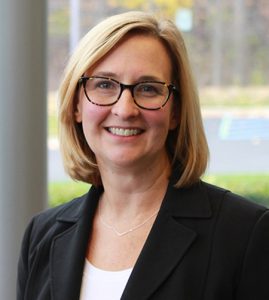What is the number one priority of MMS right now?

Kelly J. Hill
Kelly J. Hill (KJH): Our top priority is the safety of our colleagues, clients, and partners. Our teams are now home-based around the globe. We are paying very close attention to the daily updates coming from the regional authorities, adapting our company procedures and policies where necessary to ensure our teams remain safe.
An important area of focus for our teams is the integrity of the research and data from the hundreds of ongoing and planned clinical trials that have been impacted during this pandemic. We are concerned about the overall impact to innovation and delays in the development and approval of much-needed therapies. There is the need to address this global COVID-19 medical crisis while simultaneously balancing the needs of many other patients with serious, life-threatening diseases.
It is encouraging to see others in the research, pharma/biotech as well as FDA communities share this view and commitment to innovation even during this pandemic. Last week, the FDA approved Tukysa, also known as tucatinib, which fights aggressive breast cancers. Richard Pazdur, Director of the FDA’s Oncology Center of Excellence, said in a news release, “In this critical time, we remain steadfast in our commitment to patients with cancer and doing everything we can to expedite oncology product development.”
This approval demonstrates the agency’s commitment to both COVID-19 patients and those with other serious health conditions. MMS remains focused on mission to positively impact patients’ lives, aiding research into the prevention or treatment of COVID-19 and other diseases.
Read a statement from MMS on the COVID-19 pandemic.
How have you accommodated clients that may be experiencing issues right now?
KJH: Everyone in healthcare and the clinical research arena are experiencing some form of disruption. Our goal is to minimize the impact of these disruptions to clinical research and innovation. We are bringing expertise in the form of talent and technologies to help sponsors address the impact to clinical trials during this pandemic. MMS is working with each research sponsor closely, interpreting and applying the most recent COVID-19 health authority guidance.
While it is tempting to only focus on short-term, urgent work during this time, we have found it important to remind our clients to think long term. Now is the time to develop procedures and contingency plans and incorporate them into our everyday operating models. It is important to ensure that every organization and its vendors have an adequate Business Continuity and Disaster Recovery Plan (BDCP) to address similar disruptions in the future.
Another challenge for our customers today is their need to process the large volume of COVID-19 data generated each day. This data is instrumental in informing health practitioners, researchers, and health authorities about potential treatments. The data is coming from both traditional clinics and hospital systems and from unconventional sources like social media channels, including Twitter and Reddit. The MMS AI-enabled platform Datacise™ has been developed for just this purpose—to aggregate, analyze and visualize data and allow researchers to detect and evaluate data trends. There is an urgent need to access this data, to use the data that is available today to enhance clinical research design or to better inform healthcare decisions.
Lastly, to help researchers in addressing their funding needs related to COVID-19 vaccine development, MMS has created a USD 1M award, in the form of data and related services for qualified pharmaceutical companies or research organizations.
That’s a substantial sum of money to commit to. Has it been well-received thus far?
KJH: Our goal is to reduce the barriers to innovation through this award. We have received many inquiries thus far, and have extended this grant to sponsors (both industry and academia) pursuing promising research in this area. I am confident this number will continue to grow. We are continuing to look for ways to support the data planning and analytics needed to bring a vaccine or a COVID-19 treatment to the patients in need.
MMS colleagues use the hashtag #OneMMS as a sign that every person is part of one team. Has that changed with the global network of offices working from home? How have colleagues adapted?

Michelle Gayari
Michelle Gayari (MG): Every colleague, no matter their location around the globe, has been affected by this situation. I have personally seen how our common goals have brought teams together even more, including how sharing experiences of making adjustments to this new normal have proven beneficial. Each day, I see colleagues finding ways to support each other cross-functionally. Teams are jumping in quickly for our sponsor’s urgent needs and offering support to each other where needed, even if it is a few simple words of encouragement. Colleagues have all faced challenges during this time; but through flexibility and teamwork, we have maintained our status quo while supporting critical needs.
Would you say that innovation is slowing down or has this time been seen as an opportunity to create?
MG: Innovation is central to everything we do at MMS, and this is even more important now. I have been impressed with the way that our teams have come together to identify how we can best support our clients. This is where our expertise excels. Throughout the clinical research lifecycle, our teams are adapting by focusing on changing needs from implementing protocol amendments efficiently to updating databases and statistical plans to using real world data and dashboards to evaluate information on an ongoing basis.
A special sub-team has been allocated to stay updated on new global regulations, understand how these regulations impact clinical studies, and discuss best practices to implement regulatory requirements. Our biggest—and perhaps most pressing innovation right now—is our focus to contribute directly to vaccine studies that treat COVID-19 and finding opportunities to implement these studies quickly. We are fortunate to have scientifically-motivated teams globally to actively investigate and bring forward internal and external changes as needed.
Has the coronavirus pandemic made the team stronger? If so, in what ways?
MG: MMS has robust processes in place to handle challenging situations, such as the current pandemic. Early on, we created an internal team whose mission was to identify potential risks to MMS services, projects, and resources. Immediately, a contingency plan was developed. When stay-at-home recommendations were made by government officials, our teams were prepared to ensure business continuity.
Not only have we maintained all of our service lines, but have been able to support our clients in new ways as urgent needs arise and their other partners have not been able to accommodate. Our team has always been guided by a SOUL—a Sense of Urgency and Leadership— mindset in which all colleagues come together as a stronger team. I see this every day in how colleagues contribute, take on new leadership roles, identify opportunities, and are creative in developing timely solutions.
I am very appreciative of how each colleague has been able to remain focused and innovative during this time.
Download the MMS whitepaper on Six Changes that Pharmaceutical Companies Should Consider in Response to COVID-19





